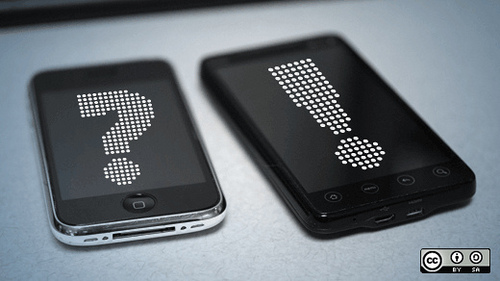If you don’t have a mobile phone by now, the chances are you’re either dead or a twelfth century monk (in which case, you shouldn’t be reading this at all!). If neither of the above applies to you, pause for a moment to marvel at how the mobile phone has come to dominate our lives in such a relatively short space of time. And now, in an age where you can do pretty much any task you’d otherwise do on laptops, on smartphones, you’d be foolish to deny the advantages of having one. But magic technology-bricks come with a fairly high price and it’s worth knowing a few tricks to help bring those costs down. Here are cost-effective and simple tips to help you get the most out of android phones.
1. If you know you’re not going to get 3G, turn it off!
And if you know that you’re not going to get any signal at all, turn the phone off, full-stop. Nothing will drain your battery faster than wasting energy searching for signals and connections that aren’t there. Switch off you phone to conserve both battery power and long-term data costs.
2. Worried about data costs, but need information fast? Text Google.
Since most payment plans now come with an SMS allowance, texting is almost always going to be cheaper than relying on mobile internet. Fortunately, if you really need to get hold of a vital piece of info and are in an area with no internet, you can text Google on 46645 (GOOGL) with search terms or questions about services/addresses in your immediate area (as long as you provide a zip code). Texts will be charged at your carrier’s rate, which will almost definitely be much lower than it would be if you used roaming internet!
3. Use VOIP to save on minutes
If you’re in an area with reliable Wi-Fi or have a generous 3G allowance, this one can be a lifesaver if you’re close to using up your allocated minutes. Simply use the Skype or Google voice apps on your smartphone to make calls rather than your sim card. The great thing about this tip is that VOIP uses relatively little bandwidth (so your data costs won’t fly out of control), and as long as you’re in a hotspot, you can avoid having to tap into your pool of minutes, which can be saved for real emergencies.
4. Be firm when negotiating with suppliers
This is especially true of your network. If you call customer service (particularly after your contract’s term is up) you’ll often find that they’re sitting on a lot of discounts and more cost-effective plans than the one you’re currently on. For instance, many networks have company discount plans that they won’t normally advertise, but could be available to you if you ask around (and paradoxically, many employees for mobile phone networks have discovered that rival companies have discount schemes with their company). Many stores will attempt to bundle unnecessary and costly accessories with their phones, which you can usually buy much cheaper online – these can be excluded to make savings on your initial purchase. Additionally, carriers will often have “nuclear options” to resort to if you’re threatening to leave the network, and it’s worth testing the waters to see if you can derive any benefit from these.
5. Send emails rather than texts
Much like our VOIP hack above, email is another online service which requires virtually no bandwidth, so you can easily stretch your text allowance further by sending much of your normal SMS communication by email. This is another tip that’s ideal if you have a fairly generous data plan, or if you’re regularly around hotspots, and will help you to relegate the more costly “traditional” method of actually making tests to last-only-resort.
6. Synchronise manually
This will be of particular interest for those of you with limited data plans. Many suppliers and apps provide automatic synchronisation for your data to their company’s cloud servers, but this can be costly once you’ve got a lot of data kicking around. The best way to avoid being hit for a hefty bill here is to simply disable this feature and synchronise manually through your computer on a regular basis. It may seem a bit fiddly at first, but it’ll help you develop good habits regarding backing up your data, and stop companies taking advantage of you by billing you extra for set-and-forget systems.
6 Ways to Get More from Your Phone
